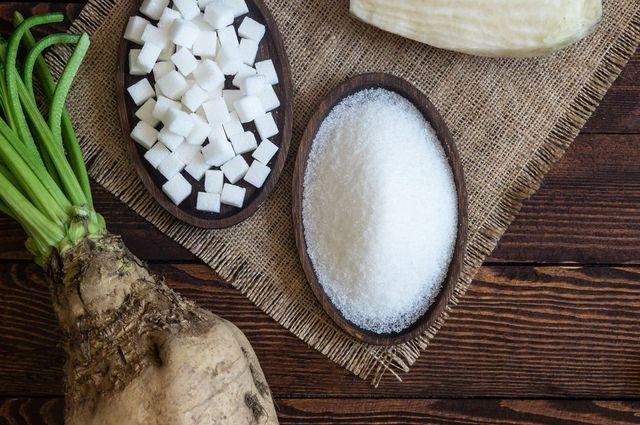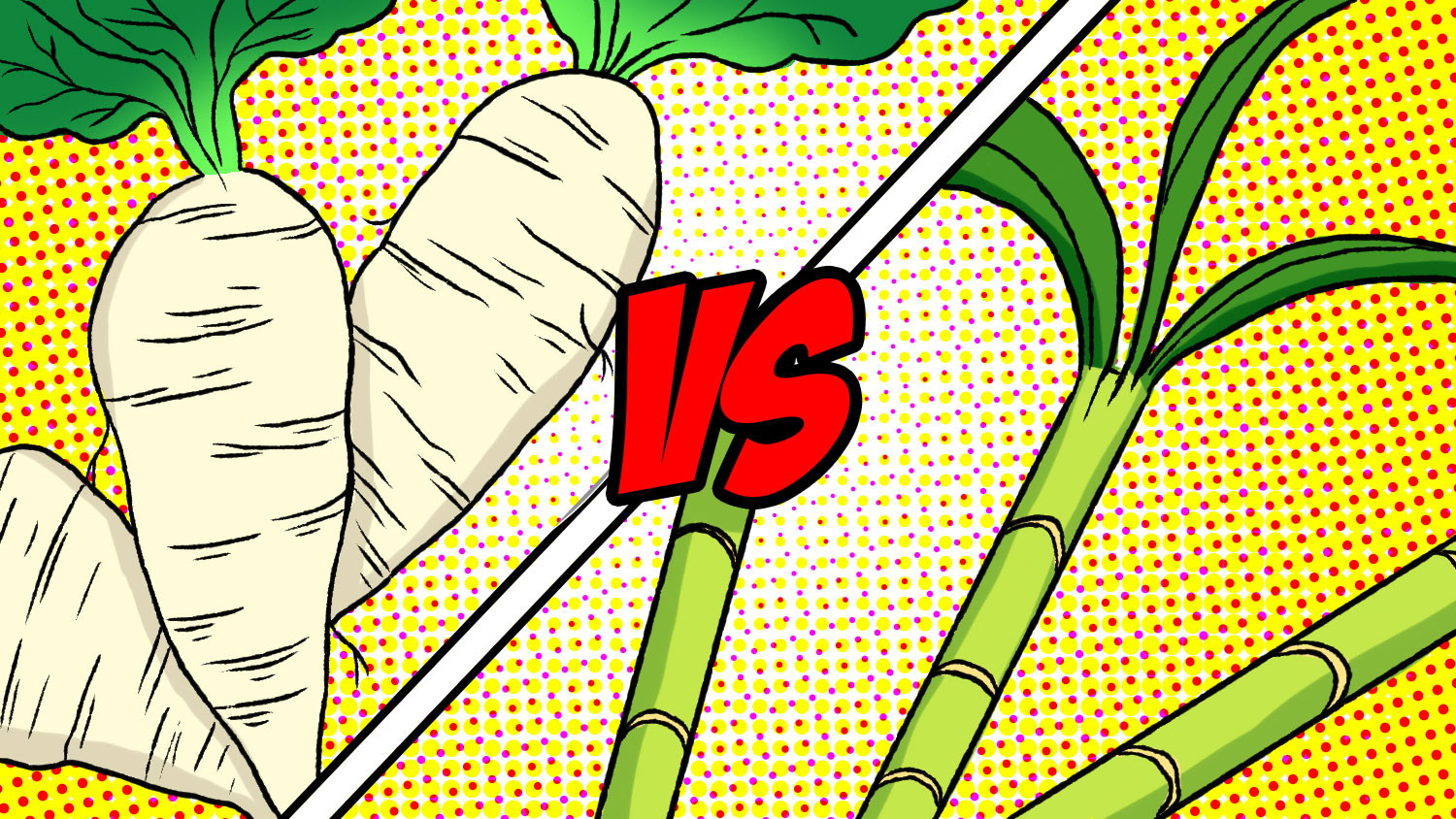Beet Sugar vs Cane: Which Sugar Source Is Better for Organic Products?
Beet Sugar vs Cane: Which Sugar Source Is Better for Organic Products?
Blog Article
The Great Debate: Beet Sugar Vs Walking Cane and Their Influence On Wellness
The recurring dispute surrounding beetroot sugar and walking stick sugar elevates crucial questions regarding their corresponding health influences and wider ramifications for consumer options. While both sweeteners share a similar chemical make-up, their origins and processing approaches may influence not just nourishment yet additionally ecological sustainability. As health-conscious people evaluate the advantages of each choice, the implications of chemical direct exposure and farming techniques enter into focus. This conversation invites us to consider not just the sweetness we select, but the significant impacts of those options on our health and the world. What might this indicate for future usage patterns?
Introduction of Sugar Sources
Sugar, an extensively taken in sugar, largely originates from two main sources: sugar beetroots and sugar walking cane. Sugar walking cane prospers in subtropical and tropical climates, with significant producers including Brazil, India, and China.
Alternatively, sugar beetroots are mostly expanded in pleasant areas, with significant production in nations such as the USA, France, and Germany. The beetroots are harvested from the ground, sliced, and based on a process that converts the drawn out juice right into granulated sugar. While both sugar resources inevitably yield sucrose, their farming techniques, processing techniques, and geographic distributions vary noticeably.
These distinctions can affect not only the environmental impact of sugar manufacturing however also the financial elements of sugar pricing and trade. Comprehending the origins of these sugar is important for consumers and policymakers alike, as it lays the structure for notified discussions about their wellness effects and sustainability.
Nutritional Contrast
When analyzing the dietary profiles of beet sugar and cane sugar, both resources share a similar composition as they mainly contain sucrose. Sucrose is a disaccharide, made up of glucose and fructose, and is accountable for the sweetness related to both sugars. The refining processes for both beetroot and walking stick sugar yield products that are mostly pure sucrose, with marginal traces of vitamins, minerals, or other nutrients.
In regards to calorie material, both beet and cane sugars offer roughly 4 calories per gram. Neither kind of sugar offers significant nutritional advantages past energy stipulation, as they lack necessary vitamins or minerals. Nonetheless, the presence of micronutrient, such as potassium, magnesium, and calcium, can differ slightly between the two, primarily as a result of the agricultural methods and dirt problems in which they are expanded.
In addition, the glycemic index values of beetroot sugar and walking stick sugar are comparable, indicating comparable impacts on blood sugar degrees. In general, from a nutritional viewpoint, beetroot and walking stick sugars are functionally equivalent, adding largely to calorie intake without supplying substantial health benefits over each other.
Health Implications
The health ramifications of consuming beetroot sugar and walking stick sugar warrant mindful consideration, specifically given the increasing frequency of sugar-related health and wellness issues. Both types of sugar add comparable calorie values and can bring about increased risks of weight problems, kind 2 diabetic issues, and cardio illness when eaten in extra. The body sugars both metabolizes right into sugar, which can trigger spikes in blood sugar levels, causing insulin resistance in time.
While there is ongoing discussion regarding the glycemic index of these sugars, researches suggest that both can adversely affect metabolic health if consumed in huge quantities. beet sugar vs cane. Additionally, the prospective presence of contaminants check out this site in beet sugar, such as chemicals from traditional farming methods, increases further health issues. On the other hand, walking stick sugar, particularly when minimally processed, may provide a slightly a lot more favorable account as a result of its click to investigate natural state
Moreover, the consumption of included sugars, no matter the source, is linked to damaging wellness end results, including oral problems and fatty liver illness. Small amounts is important, and people need to be conscious of their complete sugar consumption from all sources, ultimately prioritizing whole foods over included sugars for optimum health outcomes.
Ecological Impact
Recognizing the wellness effects of beetroot and walking cane sugar also leads to an examination of their environmental impact, which can significantly affect farming sustainability and ecological equilibrium. Both sugar sources have distinct ecological footprints, shaped by their cultivation techniques and geographical requirements.

In contrast, beet sugar is normally expanded in temperate climates and typically entails varied plant turnings. This method can enhance soil health and wellness and lower reliance on chemical inputs. Intensive beetroot farming can additionally lead to vitamins and mineral depletion and bug pressures if not handled sustainably.
Both sugar types existing difficulties and possibilities for environmental stewardship. Promoting lasting farming techniques and accountable sourcing can mitigate their impacts, making certain that sugar production aligns with ecological preservation and lasting food protection.
Customer Preferences
Amidst growing understanding of health and ecological problems, consumer choices for sugar types are progressively affected by understandings of health and wellness advantages, sustainability, and honest sourcing. Beet sugar and walking cane sugar each existing distinct characteristics that interest different customer demographics.
Health-conscious customers typically inspect the dietary profiles of these sugars, seeking options perceived as much less processed or more natural. Walking cane sugar, often considered the traditional sweetener, is in some cases preferred for its viewed pureness and simplicity. In contrast, beetroot sugar, which is frequently stemmed from site genetically changed plants, encounters suspicion amongst those concerned regarding GMOs.
Sustainability is another considerable aspect influencing customer options. As understanding of agricultural methods expands, several consumers decide for items that line up with eco-friendly farming approaches. Cane sugar manufacturing, specifically when sourced from sustainable ranches, can appeal to eco-conscious purchasers.
Ethical sourcing plays an essential duty as well, with customers increasingly favoring items that sustain fair labor methods. Qualifications such as Fair Trade can boost the beauty of walking stick sugar in the marketplace. Inevitably, customer choices are formed by an intricate interplay of health and wellness, ecological, and honest factors to consider, driving need for both beet and cane sugars in varied markets.
Verdict
To conclude, the dispute between beet sugar and cane sugar incorporates different elements, including nutritional profiles, health and wellness ramifications, and ecological consequences. beet sugar vs cane. While both sugars mostly include sucrose and display comparable calorie web content, problems relating to chemical usage in beet sugar and the eco-friendly effect of cane sugar monoculture warrant mindful consideration. As customers progressively focus on sustainability and health, notified options pertaining to sugar intake end up being crucial in promoting overall well-being and environmental stewardship

Report this page